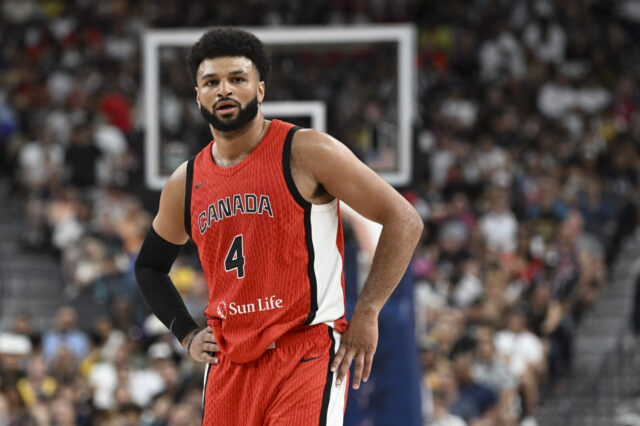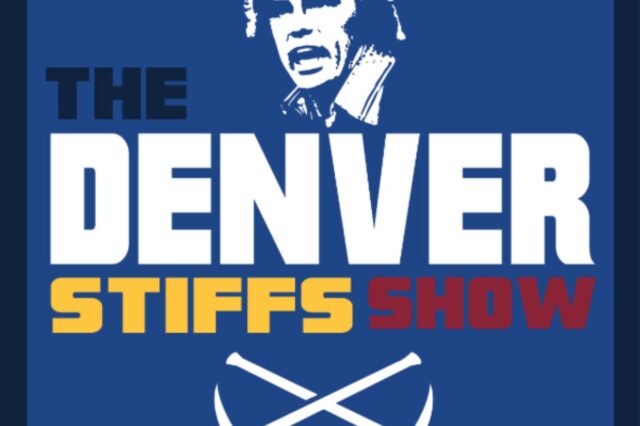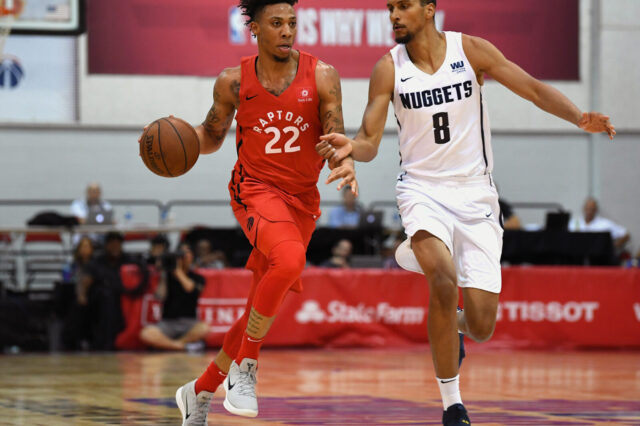Watching the star-laden Thunder and Heat go head-to-head in the 2012 NBA Finals, it’s clear that our Denver Nuggets are far removed from the championship conversation. Unfortunately, neither the Thunder nor the Heat provide a championship blueprint for the Nuggets to follow.
Every June since I can remember, two teams not named the Denver Nuggets compete for the NBA championship and I – as your resident Nuggets super fan – am asked what the Nuggets must do to to climb that championship mountain some day. When I was younger, I naively believed that we were a trade and/or a free agent signing away from getting "over the hump." But as an adult who has followed the modern era of the NBA (1979-80 through today) closely, I believe more than ever that in order for the Nuggets to win it all they're going to have to be lucky.
Really lucky.
Like the Oklahoma City Thunder. And to some extent the Miami Heat, too.
Going back to 1999, only two Western Conference franchises that sit outside of the United States’ top 10 Metropolitan Statistical Areas (San Antonio and now Oklahoma City) have been represented in the Finals, with the Spurs being the lone champion. That’s an incredible fact for a league with 30 teams. The larger market Los Angeles Lakers and Dallas Mavericks combined for the other nine appearances since then.
The Spurs have appeared in four NBA Finals for the same reason that the Thunder will appear in at least four themselves: they sucked at the right time and got lucky on top of that. I don’t need to remind Nuggets fans that in 1996-97, the Spurs tanked their regular season knowing that the once-in-a-generation Tim Duncan would be available in the 1997 NBA Draft (the Spurs finished that season with 20 wins by essentially sitting superstar center David Robinson for a prolonged time due to injury while the Nuggets stupidly won 21 games). The Spurs didn’t have the NBA’s worst record, but rather the third-worst record and scored the number one overall pick anyway.
Exactly 10 years later, the then-Seattle Supersonics (now Oklahoma City Thunder) tanked their 2006-07 season hoping to land the first overall pick for a shot at drafting Greg Oden. Finishing with the NBA’s fifth-worst record, the Sonics somehow landed the second overall pick with Portland drafting first overall before them. Portland infamously selected Oden, allowing superstar-to-be, once-in-a-generation Kevin Durant to land in Seattle’s lap at number two.
So in the case of the only two small market Western Conference teams to appear in an NBA Finals since 1999 – San Antonio and Oklahoma City – they followed a high risk, high reward "championship model" for a small market franchise: suck and hope for luck.
The Nuggets, of course, tried the suck and hope for luck strategy a few times in the last 20 years and never once scored that once-in-a-generation player. For the 1997 “Duncan Draft,” the Nuggets drafted fifth and took Tony Battie. For the 1998 draft – a season after winning an appallingly low 11 games – the Nuggets had the third overall pick and took Raef LaFrentz (oddly, the once-in-a-generation picks in that draft came after three when Vince Carter, Dirk Nowitzki and Paul Pierce were drafted fifth, ninth and 10th, respectively). Despite winning just 27 games in the 2001-02 season, the best pick the Nuggets could muster was fifth again, that time missing on Yao Ming (the Nuggets drafted Nikoloz Tskitishvili … I’ve written about that pick so many times on this site that I don’t even need to spell check his name anymore!). And even though the Nuggets won just 17 games the following season, the Nuggets had the third overall pick in the 2003 draft when the once-in-a-generation LeBron James was the clear first overall selection. Sorry, Carmelo Anthony fans, but Melo is has proven not to be a once-in-a-generation player.
Miami’s path to the NBA Finals follows a completely different model than Oklahoma City’s, but it’s also one that the Nuggets will never be able to emulate. The Heat essentially stole a once-in-a-generation player by signing James as a free agent in 2010. They were able to do this by having superstar Dwyane Wade and All-Star Chris Bosh already on board, and by offering James a desirable place to play. Miami – like Los Angeles, Dallas, Phoenix, Orlando and New York – is on the short list of NBA cities that will never have a problem attracting free agents. Denver isn’t stealing a big time free agent anytime soon.
Currently, the Nuggets are attempting to build a championship squad by assembling an assortment of “pieces” that – to their credit – are competitive on any given night against any given team. The current core of Ty Lawson, Arron Afflalo, Danilo Gallinari, Kenneth Faried and (hopefully) JaVale McGee should provide exciting basketball in Denver for a few more seasons while giving opponents fits en route to a couple first round playoff victories … i.e. the Indiana Pacers of the West. But alas, that’s probably the best Denver can do with this roster while Oklahoma City, Dallas and both L.A. teams compete for the Finals several times over the next few years with once-in-a-generation players leading the way.
The Nuggets have a great roster worthy of our support and attention, and will be fun to root for next season. But without a once-in-a-generation player on the roster – something the Nuggets haven't had since David Thompson played here, frankly – these Nuggets are far removed from the championship conversation.
And watching LeBron duke it out against Durant for the 2012 NBA crown makes that only more painfully obvious.


